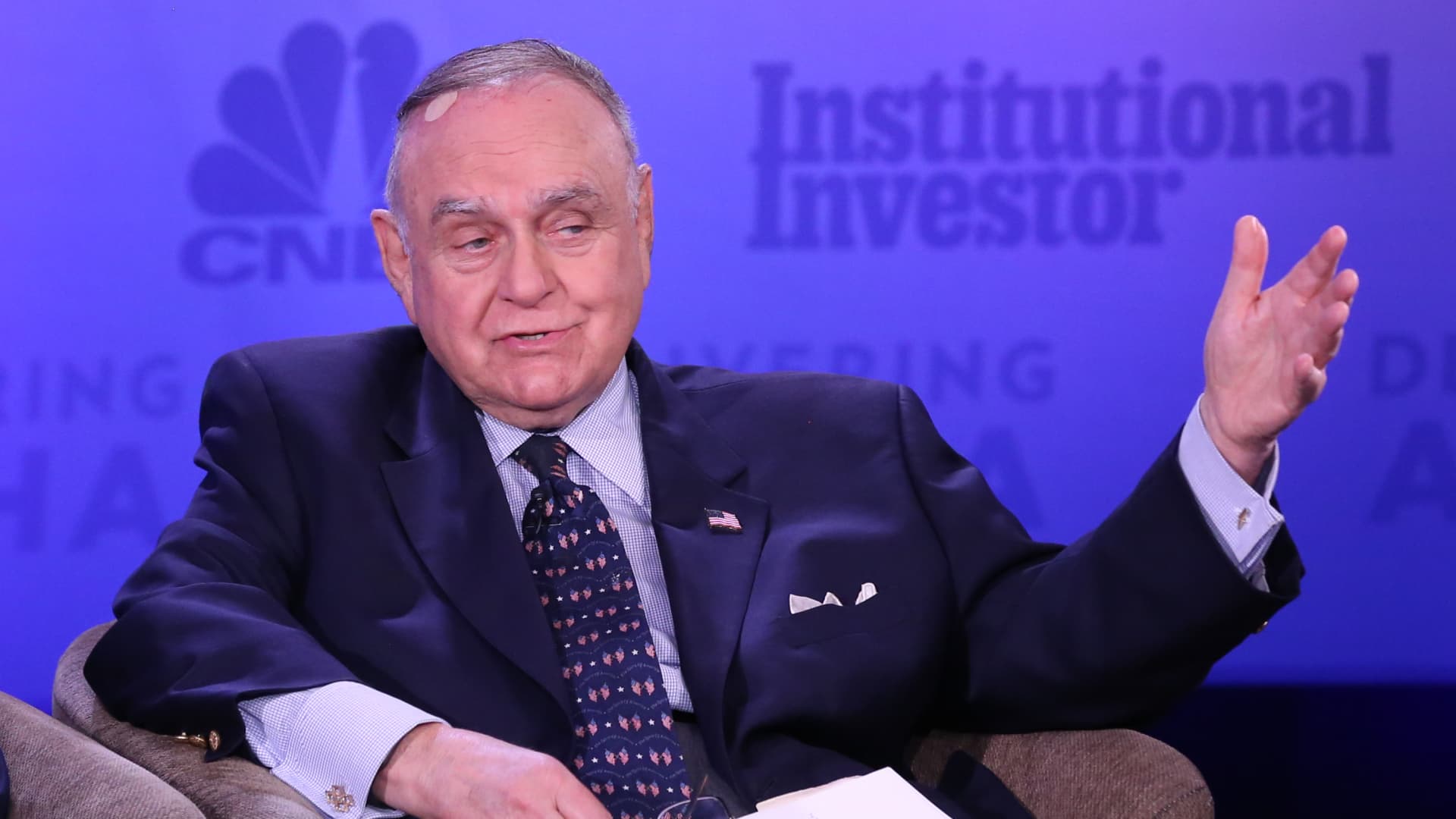Dow tanks 500 points in biggest sell-off of 2024 as JPMorgan slides and inflation fears flare up: Live updates

Traders work on the floor of the New York Stock Exchange on April 10, 2024.
Spencer Platt | Getty Images
Stocks sold off Friday, marking the Dow and S&P 500’s biggest declines of the year, as inflation and geopolitical worries once again dented investor sentiment on Wall Street. A broad decline in major bank shares also weighed on the market.
The Dow Jones Industrial Average slid 530 points, or 1.4%, in its second 500-point decline of the week. The S&P 500 tumbled 1.6%, while the Nasdaq Composite pulled back by 1.8%.
At one point in the trading session, the Dow was down as much as 579.79, or 1.5%. The S&P 500 slid as much as 1.7% and 1.9%, respectively.
Week to date, the broad market index and 30-stock Dow are down 1.5% and 2.3%, respectively. Meanwhile, the tech-heavy Nasdaq is 0.5% lower for the week.
JPMorgan Chase shares declined more than 5% after the banking giant posted its first-quarter results. The bank said net interest income, a key measure of what it makes through lending activities, could be a little short of what Wall Street analysts are expecting in 2024. CEO Jamie Dimon also warned about persistent inflationary pressures weighing on the economy.
Wells Fargo slipped 0.1% after reporting its latest quarterly figures. Citigroup dropped more than 2% despite posting a revenue beat.
Oil prices continued their rise on reports that Israel is preparing for a direct attack by Iran this weekend, in what would be the biggest escalation of tensions in the region since the outbreak of the Israel-Hamas war last October. U.S. crude was last at $87.11 a barrel.
That, coupled with fresh U.S. imports data, added fuel to inflation concerns that have put pressure on the market.
“We’re getting further risk off sentiment heading into the weekend. You’re seeing there’s a flight to safety trade, with the dollar stronger, and we’re seeing equities sell off,” said Rob Haworth, U.S. Bank Wealth Management senior investment strategist.
“That comes on the heels of the inflation data that tells us the economy’s still pretty hot and inflation is sticky; that’s what led [investors] to really adjust their expectations around the Fed. … That’s some of why they’re getting cautious headed into the weekend,” said Haworth.
Consumers are also growing worried about the persistent inflationary pressures. The consumer sentiment index for April came in at 77.9, below the Dow Jones consensus estimate of 77.9, according to the University of Michigan’s Surveys of Consumers. Year-ahead and long-run inflation expectations also ticked up, reflecting frustrations over sticky inflation.









